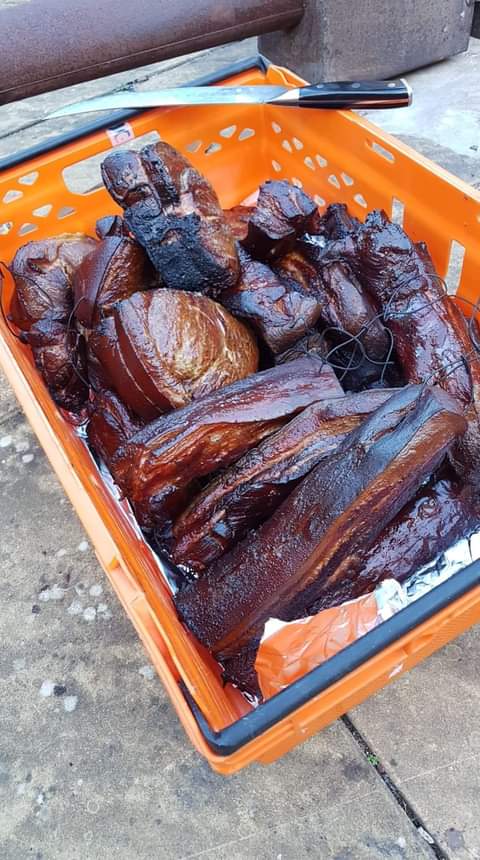Most pork lovers in Kiambu county are infected with pig tapeworm that causes epilepsy and even dementia according to a research done by Kenyatta University.
Researchers From KU say in Thika — the top pork consumer in urban Kenya — 6.3 per cent of meat lovers are infected. Those infected said they love ‘wet fry pork ’, the undercooked version that is popular in urban areas.
Although infection with the Taenia solium (pork tapeworm) is mostly asymptomatic for years, when the infection reaches the brain, people develop neurocysticercosis, the most serious complication of the disease.
“It is associated with seizures, headaches, intracranial hypertension, focal neurological disorders, hydrocephalus, encephalitis, and occasionally with psychiatric manifestations and dementia,” the researchers say.
This is the leading cause of acquired epilepsy in developing countries. The KU researchers tested stool from 384 people selected randomly around Thika between May 2016 and June 2017.
The objective was to determine factors associated with the pork tapeworm and its prevalence in Thika. Twenty-six (6.7 per cent) samples from the 384 participants were found to be positive.
“Majority of the cases were among participants who had lack latrine facilities and those who preferred fried pork,” researchers say in the study, published by the African Journal of Rural Development in April.
They are Peterson Warutere of KU’s Department of Environmental and Occupational Health, Purity Nguhiu and Lucy Kabuage of the Animal Science department, Kabui Kinyua from the Department of Zoological Sciences and Powell Kanina from Kiambu Level 5 Hospital.
Other risk factors associated with Taenia solium was lack of deworming by the participants. Researchers also sought permission to test pigs in farms around Thika.
An inspection of the tongues of 273 pigs’ found 1.81 per cent were infected while an antibody test confirmed 1.83 per cent of pigs in Thika were infected. Nearly all of those pigs ate swill from garbage and home leftovers.
“Feeding pigs on home mixed feeds, leftover, swills from garbage and purchase of replacement pigs were found to increase the risk of pig cysticercosis (infection by the tapeworm),” the five researchers say.
- Sarah Wairimu Demands 500M Home, Porsche, 2 Dogs From Murdered Tycoon Tob Cohen
- US Woman Arrested For Masturbating In Front Of A Child Outside A Supermarket Rearrested For Same Offence
- Wizkid, Davido, Burna Boy, Yemi Alade Among Nigerian Celebs Sued For Their Involvement In Bloody #EndSARS protests
- Biden To Trump: Blocking Transition Is An Embarrassment And Will Not Help Your Legacy
Pork tapeworm is acquired by humans by ingesting the parasite’s larval cysts in undercooked and infected pork.
Human tapeworm carriers excrete tapeworm eggs in their faeces and contaminate the environment when they defecate in open spaces. The pigs are then infected when they come into contact with human faeces, and the cycle continues.
This is not the first time Kenyans have been warned over undercooked pork. The Kenya Veterinary Department in March last year warned Kiambu was the epicentre of pig tapeworm infection.
KVD said most Kiambu pig farmers practice a semi-intensive production system with little regard for good hygiene practices.
The department said the only way to rid pork of the tapeworm is through proper boiling. Infected people and pigs can be successfully treated.
RELATED POST:Nurses In Bondo Under Serious Condemnation For Investing In The Hearse Business
